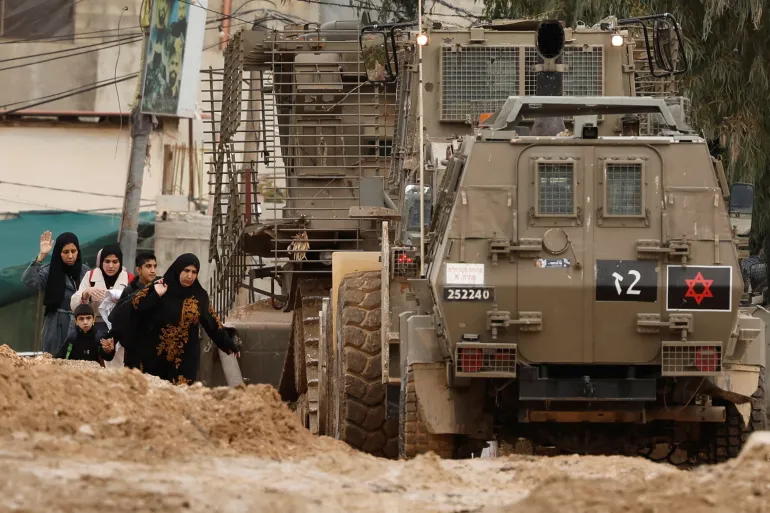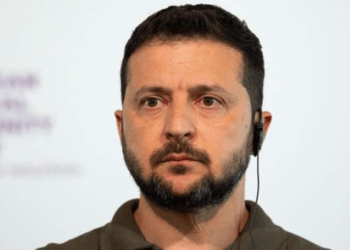Residents inside the Jenin refugee camp have reported constant gunfire and explosions while the Palestinian health services reported a number of people wounded in the camp.
The UN’s agency for Palestinian refugees (UNRWA) announced that Israeli forces have used “advanced weaponry and warfare methods, including air strikes” on the Jenin camp, which is now “nearly uninhabitable” with an estimated 2,000 families displaced from the area since December.
According to Roland Friedrich, UNRWA’s Director of Affairs for the occupied West Bank and East Jerusalem, Israel’s “massive operation” in Jenin threatens to undermine the fragile ceasefire reached just days ago in Gaza.
Meanwhile, Israel’s Defence Minister, Israel Katz stated that Israeli forces are applying methods learned during the war on Gaza to their ongoing “Iron Wall” military operation in the occupied West Bank, where troops have killed at least 10 people in Jenin and ordered residents to flee the area’s refugee camp.
Katz said that the Jenin operation, which is entering its third day, marks a shift in Israel’s military plan in the occupied West Bank and was “the first lesson from the method of repeated raids in Gaza.”
An Israeli military spokesperson declined to give details of the Jenin operation, which began on Tuesday and is the third major incursion by the Israeli army in less than two years into Jenin, a longtime stronghold of resistance to Israel’s decades-old military occupation of Palestinian territory.
Settler Violence Intensifies
Several Palestinian towns and villages have been targeted by a wave of Israeli settler violence in the past few days, triggered by the implementation of a ceasefire and hostage release deal in the war in Gaza.
At least six villages across the West Bank – Sinjil, Turmus Ayya, Ein Sinya and Luban e-Sharkiya near Ramallah, and Funduq and Jinsafut, near Nablus – were targeted early this week by dozens of Israeli men and boys.
The rioters threw molotov cocktails and rocks, breaking windows and setting several houses and cars on fire in each place they targeted in protest at the release of 90 Palestinian women and children held in Israeli jails in exchange for three Israeli hostages held in Gaza.
Settler violence is not a new phenomenon across area C, the 60% of the West Bank under Israeli civil and military control, but it has soared since far-right settler leaders were elected to Israel’s government at the end of 2022.
Since the war in Gaza began, settler violence has intensified further, displacing entire villages for the first time. On many occasions, the Israeli army has been documented failing to stop settler attacks, or even joining in.
In the past year, western countries have begun to sanction individuals implicated in settler violence and pro-settlement sources of funding and support – a rebuke to Israeli political figures such as the extremists Bezalel Smotrich and Itamar Ben-Gvir, who fan the flames.
However, on his first day in office, US President, Donald Trump, rescinded US sanctions against Israeli settlers, a move welcomed by the Israeli right.
In his first term, Trump was tolerant of settlement expansion and moved the US embassy from Tel Aviv to the contested city of Jerusalem. His second stint in office is expected to be similarly supportive of Israel, for whom the US is a crucial ally.
Trump’s stance is likely to add to the sense of impunity already enjoyed by settlers: statistics published by the Israeli rights organisation Yesh Din, based on official Israeli data, found that between 2005 and 2024, just 1,701 police investigation files into settler violence were opened, despite the fact attacks are now occurring on a daily basis.
Only 6.4% resulted in indictments, and 3% in full or partial convictions.
For Palestinians living near settlements, persevering with normal routines is becoming increasingly difficult.
READ ALSO: GSE Composite Index Posts 3.46% YTD Gain Amid Rising Market Activity



















